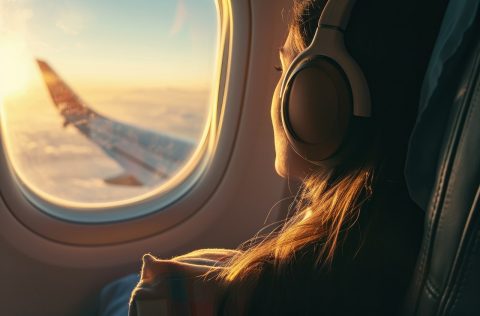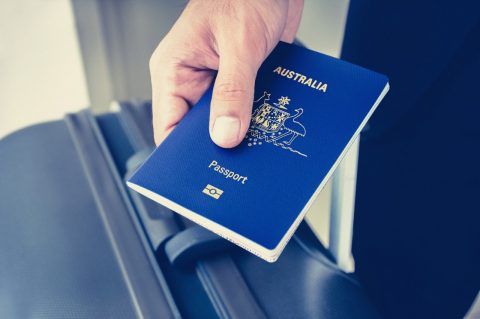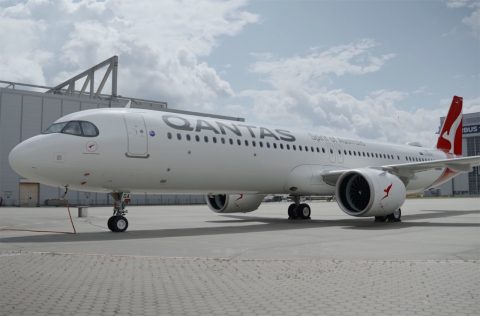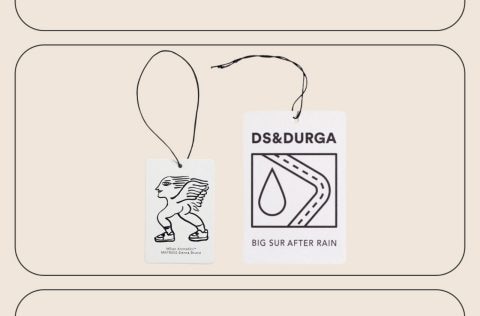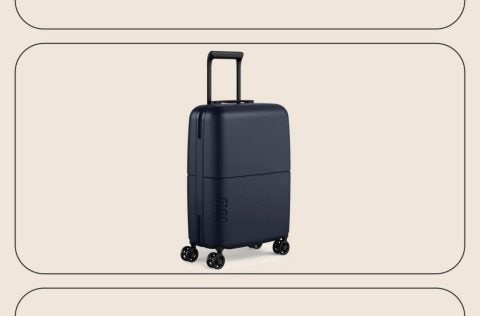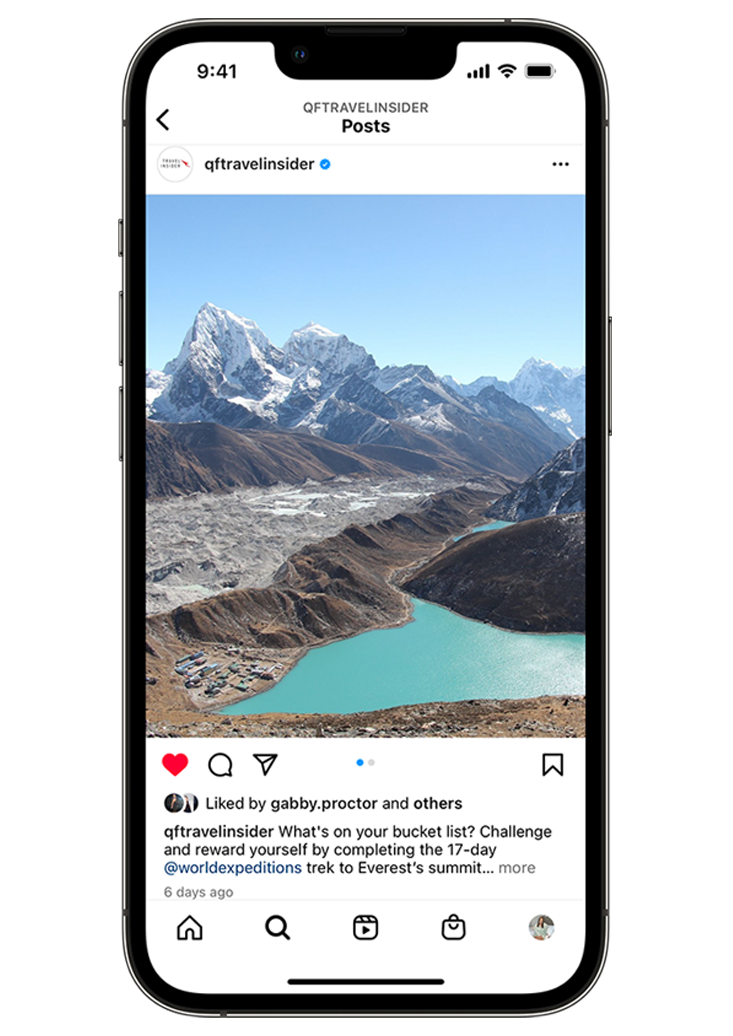The Only Checklist You Need Before Flying Overseas
Whether you’re a frequent flyer or it’s your first time abroad, travelling overseas is a thrilling experience and the amount of preparation you do before getting on the plane will make a big difference to your holiday. To help make your trip a breeze, we’ve created the ultimate international travel checklist to help keep you organised, safe, and less stressed mid-air.
Image credit: Atstock Productions - stock.adobe.com
Check your passport
1/17Sure, everyone 'knows' this rule but when was the last time you checked the actual expiry of your passport? After all, it may say "2026" but if that's January 2026, it's likely you'll encounter some trouble. Most foreign governments require visitors to carry a passport with at least six months' validity (beyond their planned stay) or they may be refused entry. Additionally, if you've changed passports recently and have a long-term visa agreement or long-term visa waiver with a country, you'll also need to renew the latter to match your new passport number. All this to say: do your due diligence when it comes to your passport.
Make sure you’re following visa and entry requirements
2/17The same goes for visa and entry requirements, of course. It goes without saying that different destinations have different requirements for entry and these change regularly, so don't assume you know exactly what you need without checking. Make sure you’re aware of these by contacting the embassy or consulate of the country you'll be visiting and organising your visa, if you need one, well in advance. Vaccine requirements also differ, so it’s important to check the latest travel requirements on Smarttraveller.
Get travel insurance
3/17Don't tempt fate. Even if you've never had to rely on it on past trips, taking out travel insurance is still essential to cover risks such as losing your passport, theft of valuables and medical emergencies. It's also crucial that you secure travel insurance as soon as you've secured your arrangements: some policies can cover some costs of cancellation and/or alterations to your plans, relieving you of unnecessary financial stress.
Research your destination
4/17How little or how much research you do on your destination will likely depend on your travel style: some plan their itinerary down to every meal, some like to leave things to spontaneity. No matter your approach, it's a good idea to prep yourself for some of the unique cultural experiences you'll encounter by learning some helpful language phrases or giving yourself a crash course in cultural expectations.
Don't forget to also familiarise yourself with the local laws and medical systems in countries you plan to visit, too. Here are some of our expert travel guides on destinations that are popular right now:
Don’t leave packing to the last moment
5/17It's little wonder packing a suitcase can be challenging: while some are frequent travellers and have their routines downpat, others may only get to practise the art every so often. A well-packed suitcase is a crucial part of travel preparation: you'll have less to carry, less to organise and plenty of space for souvenirs or other items you’d like to bring home with you. Start by considering items that will make their presence in your luggage worthwhile, then find a packing style that works for you and finally, familiarise yourself with check the carry-on and checked luggage limits for your flight to avoid any last-minute repacking stress at the airport.
Organise your carry-on luggage
6/17Your carry-on bag can be anything that makes your life (and travel) easier and more efficient. Be considered when packing it: keep all the items you know you'll want for the flight – tablet, headphones, wrap, passport, pen, chargers – in a separate pouch within your bag so they’re easy to grab on the plane. Still struggling to fit it all in? These tips for keeping your check-in under 10 kilograms could be the key.
Invest in quality luggage
7/17You don't have to pay top dollar for good luggage but you do have to consider how important a quality set can be when travelling. A suitcase has to withstand a lot in transit, so it's important that you opt for a bag that can withstand the constant movement and pressure of long-haul travel; whether that be with wheels that are durable, flexible and sturdy or substantial zips that can withstand opened and closed umpteen times.
Though preference plays a key role in suitcase selection, a hardshell option is often preferable for your checked luggage as it will protect your items. If you're a packing cubes enthusiast, these are well worth investing in, too – good quality packing cubes are structured, made from quality, rip-resistant fabric and won't need replacing as often as the cheaper alternatives often do.
Prepare your home
8/17If you're going on a holiday, especially a multi-week trip, you’ll need to prepare your home to be unoccupied. Don’t broadcast your holiday plans across social media and make sure you lock up securely, which might include installing a quality security system with motion-detecting cameras and real-time notifications or telling a trusted friend or neighbour your travel dates so they can keep watch over your home. You can also share your contact details with them in case of an emergency.
Check your essential documents
9/17Having a folder of photocopied essential documents can be a saviour while travelling. This should include a copy of your passport, itinerary and anything else that might be handy in case of an emergency. It’s also a good idea to back up these documents to the cloud or, give a copy of each to a family member back home in case you misplace them while you're away.
Download useful travel apps
10/17A great arsenal of travel apps can help you navigate a new city, perform currency conversions, pack a perfect suitcase and even provide on-the-ground local expertise so it’s worth downloading them before your trip to help you make more informed and safe decisions and get the absolute best out of your trip. A game-changer? Pre-downloading Google Maps so you can navigate your destination even when offline.
Pre-plan your mobile and internet options
11/17While you'll most likely have reliable internet at your accommodation and some key tourist attractions and restaurants, having data on your phone can make a major difference throughout your travels and open at least one effective form of communication worldwide. A local SIM can a better alternative than global roaming, which can often be expensive, and it gives you the flexibility to browse without worrying about the cost. These are easiest to buy from most airports, electronic stores, department stores and directly from phone providers. For security, it's good practice to install and use a VPN application on your phone and computer.
Take control of your finances
12/17Unexpected fees, the inability to access your money and missing out on activities because you have no local cash are all risks to consider when deciding whether or not to travel with bank cards, travel cards or cash. It’s a good idea to have several payment options available in case of emergencies: the Qantas Travel Money card allows you to lock in exchange rates on up to 11 currencies or load Australian dollars (AUD) to use worldwide and even rewards you with Qantas Points for spending. It's not always wise to exchange before you fly but it can be handy to have some small change when you arrive at your destination.
Some destinations require cash only payments for entry visas. For this reason, carrying a small amount of cash at the beginning of your trip can be crucial.
Make sure you arrive at the airport on time
13/17Ah, the age-old question: when should you arrive at the airport? Of course, the earlier you are, the less likely you are to miss your flight. An ideal arrival time for international flights is at least two hours before your scheduled departure. Check-in for Qantas international flights closes 90 minutes before departure and checking in online – available 24 hours prior to your flight – can save you a lot of stress on the day of flying, allowing you to stick to the above rule without any fear of cutting it too fine. If you have lounge access, make sure to check lounge opening hours, location and bar service times prior to your arrival. You should also review the lounge dress code beforehand.
Streamline your security check
14/17Before you fly internationally, you'll need to clear immigration, customs and security procedures. Unless you have TSA PreCheck (valid at certain airports in the US only), you will need to remove various items, such as liquids (containers can be no larger than 100 millilitres even if only partially filled) and electronics from your luggage and place them in separate tubs before going through security. Keeping these items in an easy-to-reach spot will make the process more efficient. You might also have to remove your shoes, large jackets, items from pockets and jewellery before passing through.
Make the most of tax-free shopping
15/17Some destinations offer tax-free shopping for tourists. Global Blue lists each country where this is possible and the requirements, so reading up ahead of time can result in major savings on your purchases. Note that most refund points can be found in airports, so if you intend to collect your savings, build in some additional airport time before departure.
Avoid a customs faux pas
16/17To protect Australia’s health, security and environment, we have strict biosecurity rules that dictate what you can bring back into the country. The Smartraveller website has information about biosecurity and border controls as well as clear guidelines on what you can and cannot return with.




